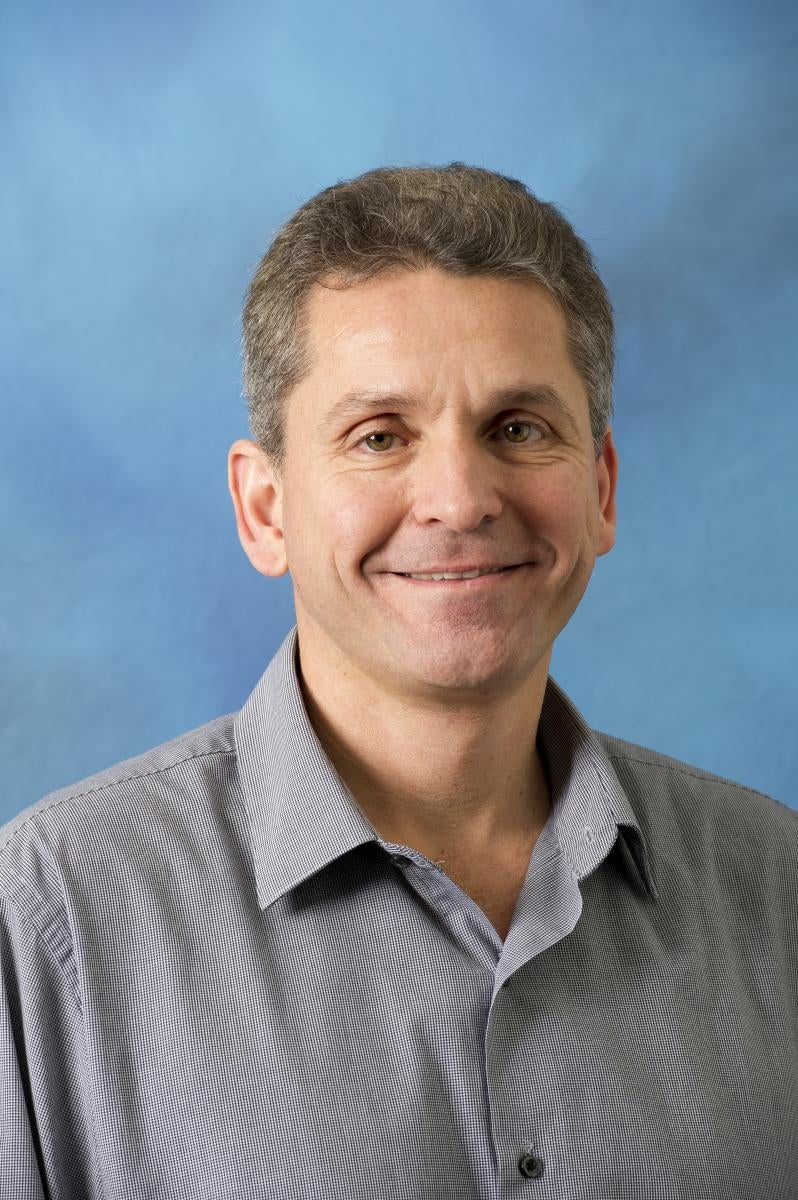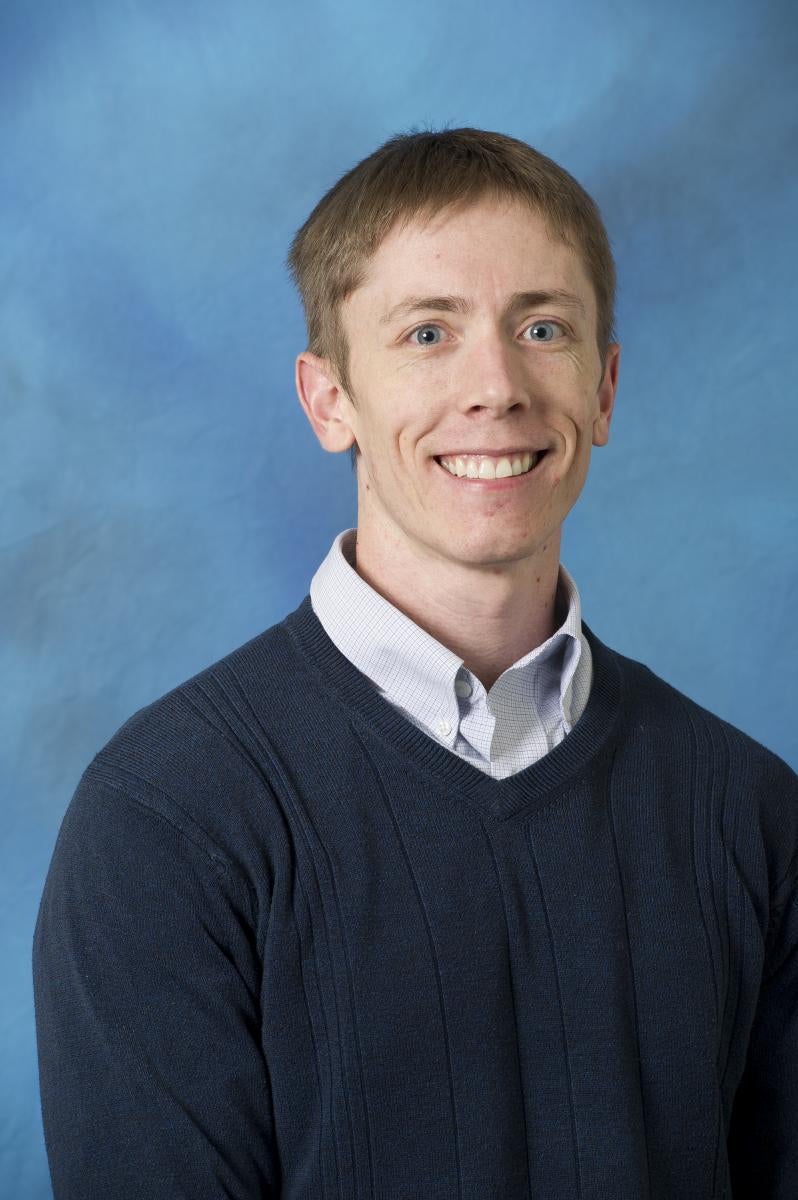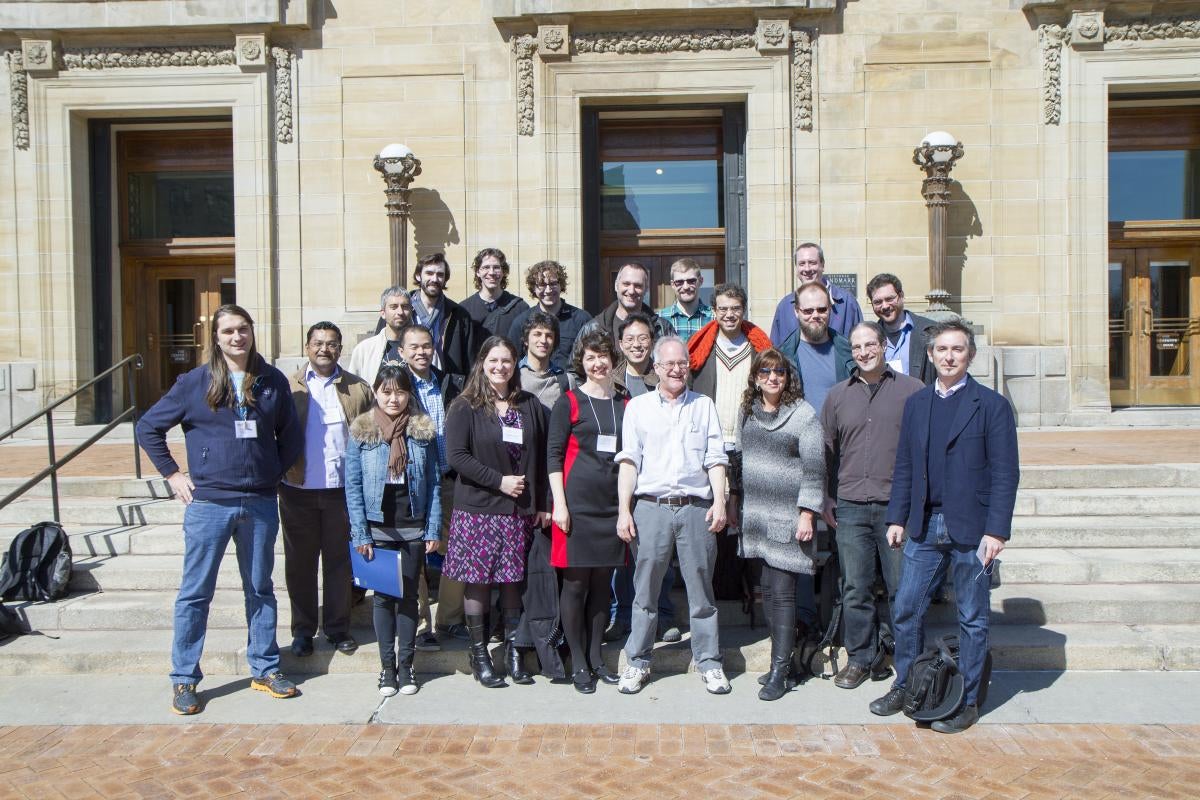Chair's Message
Dear Alumni and Friends of the Department of Mathematics:
In this issue of By the Numb3rs you can read about recent developments in the Department as well as some accomplishments by our students and faculty. We are pleased to inform you that Dr. Michael Neilan has been selected as an Alfred P. Sloan Research Fellow. Dr. Bard Ermentrout's career was highlighted at the Conference "Nonlinear dynamics and stochastic methods: from neuroscience to other biological applications", hosted here at the University of Pittsburgh in March 2014. Funding for this workshop came from several agencies including the National Science Foundation and the Mathematics Research Center, with generous funding from the Dietrich School of Arts and Sciences.
We share some exciting developments on Dr. Marta Lewicka's research project titled "Some Mathematical Problems in Shape Formation".
Dr. Bard Ermentrout was awarded a generous grant from the Benter Foundation, titled "The role of ongoing spatio-temporal activity on shaping responses to inputs in biological networks". Dr. David Swigon is collaborating on the newly awarded grant "Model-Based Decisions in Sepsis" sponsored by the National Institutes of Health. There are several undergraduate students working with our faculty on research projects. Three of our graduate students have been awarded Andrew Mellon Predoctoral Fellowships. These awards are given to students of exceptional promise and ability.
In March we hosted the International Workshop "Advances in Nonlinear Analysis, funded by the Mathematics Research Center at the University of Pittsburgh, the Institute of Mathematics and its Applications and the National Science Foundation. In addition, we have two interesting conferences coming up in May, "Workshop on Computational Geomechanics" and "Geometry Topology and Physics Workshop" that are made possible with funding from the Mathematics Research Center.
An important addition to our web site is a new alumni page. Please fill in any exciting news you'd like to share with us. As always, please keep in touch. We would love to hear from you. Visit our web page www.mathematics.pitt.edu for information on how to contact us and for the latest news about the Department.
Michael Neilan has been awarded a 2014 Sloan Research Fellowship in Mathematics
Please join the Department of Mathematics in congratulating Prof. Michael Neilan on receiveing the pretigious 2014 Sloan Research Fellowship in Mathematics.

“For more than half a century, the Sloan Foundation has been proud to honor the best young scientific minds and support them during a crucial phase of their careers when early funding and recognition can really make a difference,” said Dr. Paul L. Joskow, P resident of the Alfred P. Sloan Foundation. “These researchers are pushing the boundaries of scientific knowledge in unprecedented ways.”
Awarded in eight scientific and technical fields — chemistry, computer science, economics, mathematics, computational and evolutionary molecular biology, neuroscience, ocean sciences, and physics — the Sloan Research F ellowships are awarded through close cooperation with the scientific community. Candidates must be nominated by their fellow scientists , and winning fellows are selected by an independent panel of senior scholars on the basis of a candidate’s independent research accomplishments, creativity, and potential to become a leader in his or her field. Fellows receive $50,000 to further their research.
A list of this years winners can be found here.
University Professor Bard Ermentrout Celebrates a Milestone Birthday During the Nonlinear Dynamics and Stochastic Methods Conference
This three-day conference brought together a mix of senior and junior scientists to report on theoretical methods that proved successful in mathematical neuroscience, and to encourage their dissemination and application to modeling in computational medicine and other biological fields. The invited speakers will presented on mathematical topics such as dynamical systems, multi-scale modeling, phase resetting curves, pattern formation and statistical methods.
In conjunction with the conference, Professor Bard Ermentrout who has been at the forefront of the conference's topics throughout his career was honored in celebration of his 60th birthday.
Bard studied pure math before completing his Ph.D. in Biophysics at the University of Chicago under the supervision of Jack Cowan. His early research successes included the application of pattern formation theory to models of the visual cortex to show how the "form constants" associated with hallucination patterns can naturally emerge. He went on to do a postdoc at the National Institutes of Health, with John Rinzel, where he studied neural excitability and oscillations, before coming to Pitt in 1982.
 Bard's research has spanned a vast range of mathematical biology topics, many in the realm of neuroscience as well as others in areas such as the formation of patterns on seashells, the dynamics of cytoskeletal filaments inside of cells, the acute immune response, secretion by pancreatic duct cells, firefly flashing patterns, and ant foraging behaviors. He has had a long-term interest in all types of pattern formation and oscillations, has more recently made significant contributions to the impact of fluctuations on neural dynamics, and has also collaborated with experimentalists on the study of brain diseases such as epilepsy and schizophrenia. Since 2003, he has been a University Professor of Computational Biology,
Bard's research has spanned a vast range of mathematical biology topics, many in the realm of neuroscience as well as others in areas such as the formation of patterns on seashells, the dynamics of cytoskeletal filaments inside of cells, the acute immune response, secretion by pancreatic duct cells, firefly flashing patterns, and ant foraging behaviors. He has had a long-term interest in all types of pattern formation and oscillations, has more recently made significant contributions to the impact of fluctuations on neural dynamics, and has also collaborated with experimentalists on the study of brain diseases such as epilepsy and schizophrenia. Since 2003, he has been a University Professor of Computational Biology,
In addition to his research, a major contribution to the field comes from Bard's program XPPAUT, which solves differential and discrete equations, interfaces with continuation routines for tracking bifurcations, includes a wide variety of other built-in features, and is available FREE online for use on most modern computation platforms. Bard has written two books, one on XPPAUT and another "instant classic", "Mathematical Foundations of Neuroscience", co-authored with David Terman. Bard's scientific knowledge is impressively broad, and he is also an expert on an eclectic assortment of areas of pop culture such as punk rock, Popeye, and the Three Stooges, a foodie, and a logophile -- as well as an inspiration to generations of mathematical biology researchers.